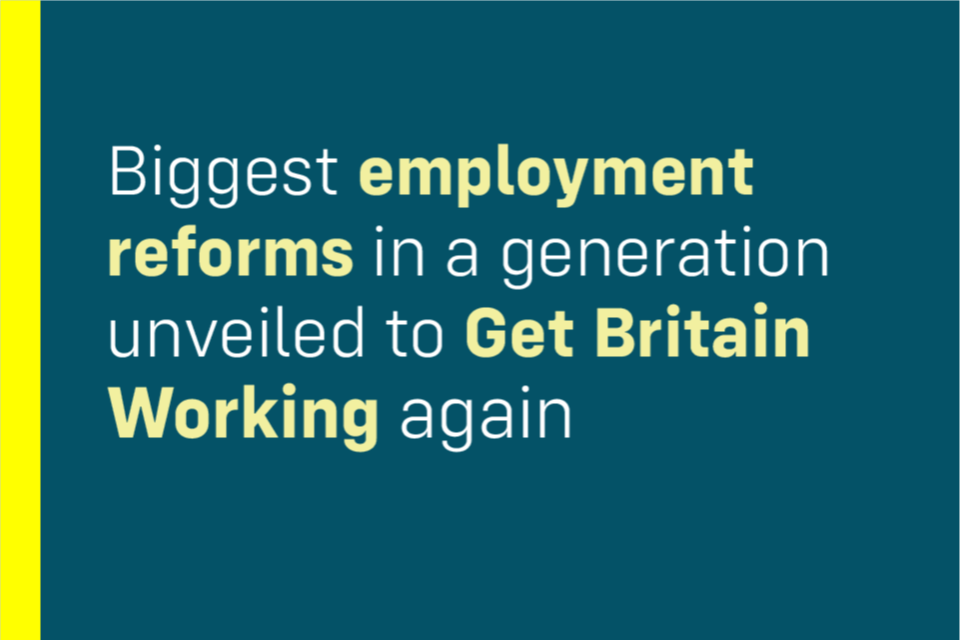Drive to bring down benefits bill undermined by NI hikes and jobs rights

- by Admin
- November 26, 2024

A Government employment drive to bring down the benefits bill will be hampered by new workers’ rights legislation and the hike to employers’ national insurance contributions, ministers have been warned.
Work and Pensions Secretary Liz Kendall will today announce plans to offer more tailored employment support in an effort to tackle near-record levels of joblessness.
They will include a specific drive to get chronically sick and younger people into either employment or training.
But the announcement comes amid warnings that Government policy elsewhere will reduce the number of jobs available.
The Government’s flagship Employment Rights Bill risks slashing employment opportunities – in particular for young people – due to plans to introduce stronger protections for workers from day one, a watchdog warned.
The Regulatory Policy Committee, an independent overseer of government policy, said the impact assessment of the proposed legislation was “not fit for purpose” and had not taken into account risks posed by the changes.
It warned ministers that, to properly consider the overall impact of the policy, they must look at the effect on job opportunities.
“There may also be negative impacts on recruitment, including from employers potentially adopting labour-saving technological measures such as AI systems and self-service checkouts,” the report said.
It went on: “The impact assessment would benefit from addressing concerns that the proposals could make it more difficult for those unemployed or economically inactive to access jobs, either through overall negative impacts on employment and/or a strengthening of ‘insider’ power” – meaning those already in a company have a better chance of jobs within that company than new recruits.
“Insider power” could “disadvantage young people entering the workforce for the first time, the unemployed and parents returning to work for example,” the report warned, because companies could be forced to rely on internal hiring or recruitment based on personal networks.
The warning over the Employment Rights Bill contrasted with Kendall’s attempts to tackle economic inactivity by working with employers to hire those who have been out of the labour market for some time.
And it comes after the Office for Budget Responsibility (OBR) warned that the Government’s decision to raise employer national insurance contributions (NICs) would further “reduce labour market supply”.
Chancellor Rachel Reeves was forced to defend her Budget policies after facing criticism from business leaders at the Confederation of British Industry (CBI) annual conference.
Danni Hewson, head of financial analysis at AJ Bell, told i that Reeves’s decision to increase NICs and hike the minimum wage had raised concerns among business leaders that they would be financially squeezed to the point it would impact employment levels.
“Businesses aren’t saying no to tax increases, but they’re questioning how those tax hikes are being implemented, in particular the lowering of the NI threshold which was unexpected and is likely to impact job creation and retention,” she said.
Tory shadow Work and Pensions Secretary Helen Whately said: “To get people off benefits you also need jobs for them to go to. But Labour’s disastrous anti-growth Budget is already making businesses think twice about taking people on.”
Under the Department for Work and Pensions’ plans – part of the Government’s drive to reduce the welfare bill by £3bn – areas with the highest levels of joblessness will get extra NHS care and tailored career support.
While unemployment stands at almost 1.5 million, economic inactivity – those not in work and not looking for work – has also soared to more than nine million.
One driver of this is long-term sickness, which is locking people out of the labour market.
The Government said it would provide extra capacity to cut waiting lists at the 20 NHS trusts with the highest levels of economic inactivity.
And Kendall’s plans will see an expansion of mental health support and efforts to tackle obesity.
Jobcentres will be morphed into a new National Jobs and Careers Service under a £55m scheme. The new system is expected to have a greater focus on helping people back into work rather than monitoring benefit claims.
But ministers also stressed that benefit sanctions would still apply to those who do not take up work or education opportunities, saying that “conditionality” would play a part in the policy.
The Government said it would launch a review into how employers can better employ people with disabilities and health conditions, with a separate disability benefit consultation to be launched in spring.
The Federation of Small Businesses (FSB) welcomed the move to bring down unemployment but said that it was just a “start” in tackling health-related inactivity.
Tina McKenzie, FSB Policy Chair, said: “To deliver on this policy agenda, Government and small businesses must work in partnership to drive real change through the whole employment system and make sure the country is helping those who most need work.”
Prime Minister Sir Keir Starmer said the Government’s reforms would “put an end to the culture of blaming and shaming people who for too long haven’t been getting the support they need to get back to work” and help people into “decent, well-paid jobs”.
But Kendall also made clear that the Government expected those who were able to work to take up those opportunities.
Referring to the policies of the last Labour government, she told broadcasters on a visit to Peterborough: “We said there was no option of a life on benefits, and that principle remains the same today.”
The Latest News
-
November 26, 2024UK police forces quietly withdraw from X platform amid content concerns
-
November 26, 2024Russia kicks out British diplomat for spying
-
November 26, 2024Russia breaks silence on ex-British soldier captured fighting Putin’s troops
-
November 26, 2024Russian nuclear base deserter reveals terrifying secret
-
November 26, 2024Liz Kendall warns benefits bill set to soar by £26bn – live




